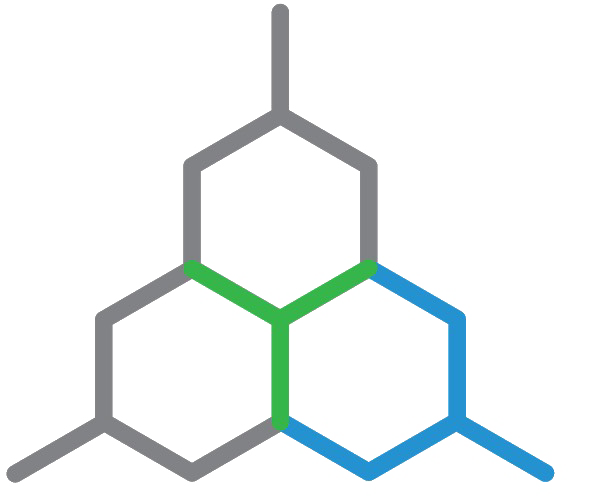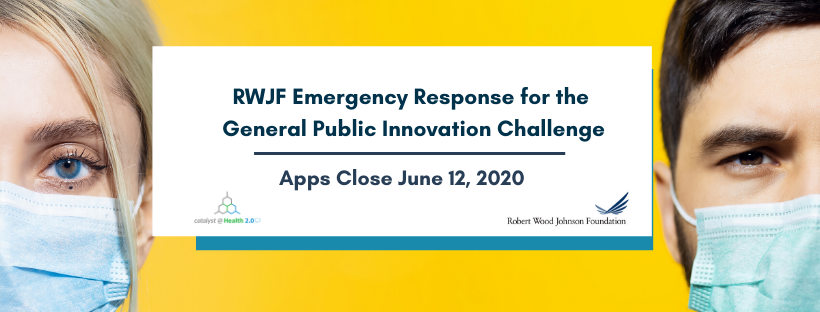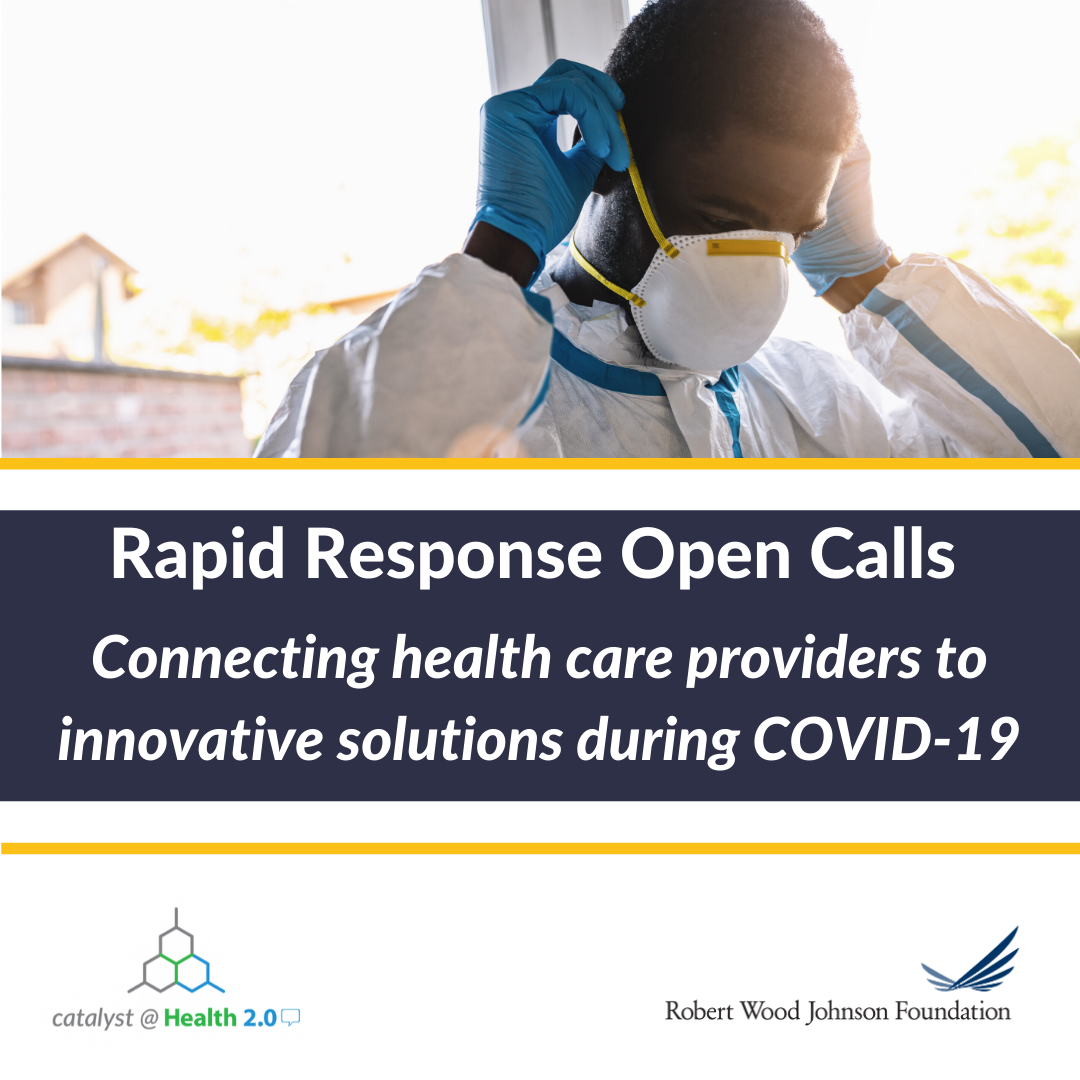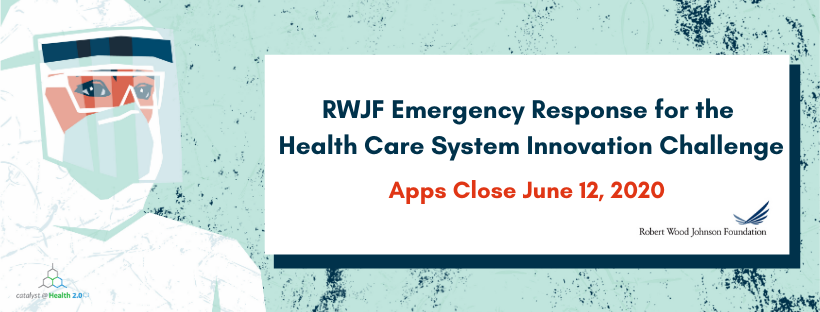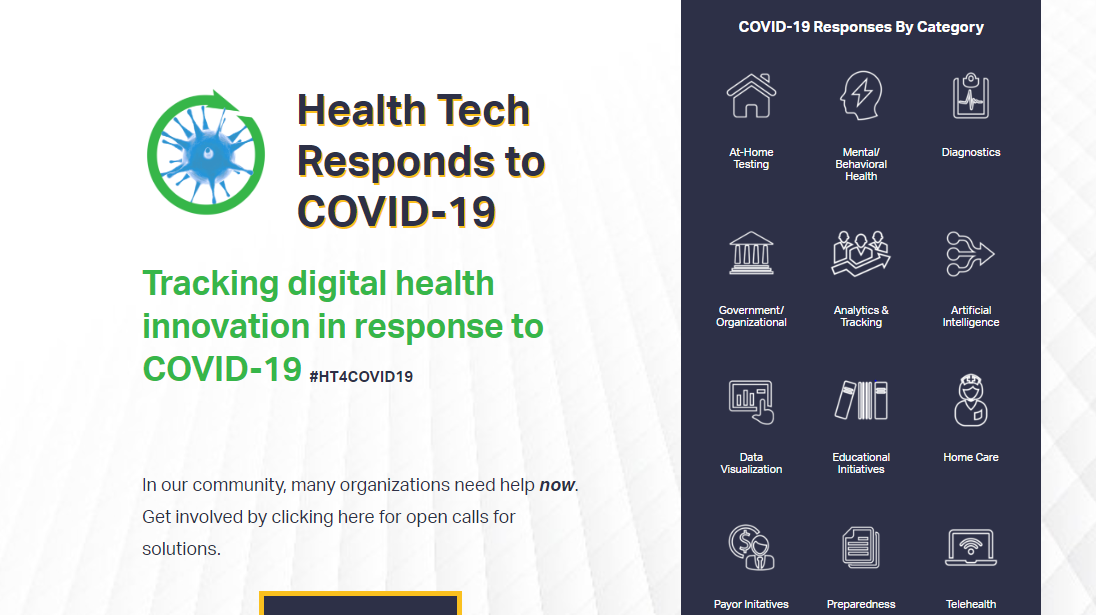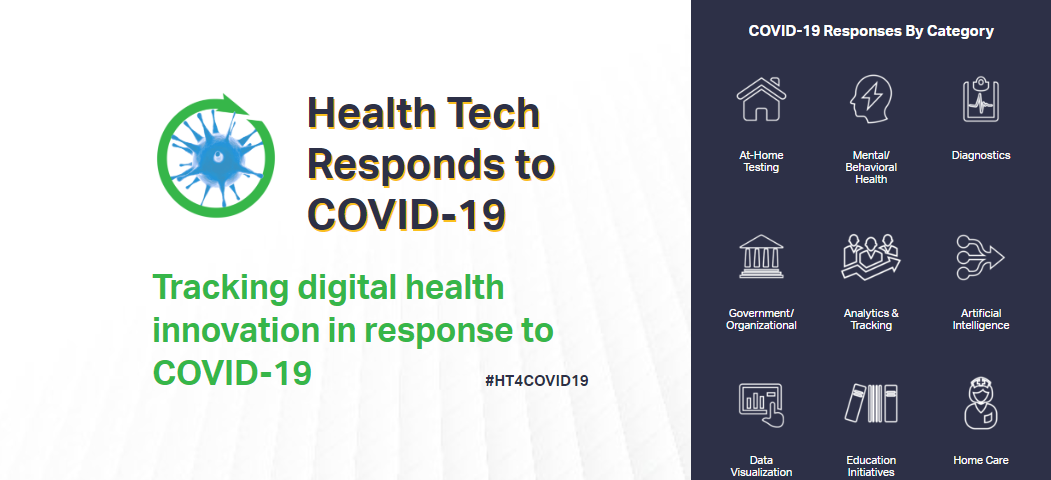Tune-in to the COVID-19 Symptom Data Challenge Webinar 9/8
Catalyst is excited to announce the COVID-19 Symptom Data Challenge Webinar, taking place on Tuesday, September 8th from 1-2PM ET. The webinar will provide the audience with a more in-depth explanation of the newly launched COVID-19 Symptom Data Challenge, in which innovators are being asked to submit their novel analytic approaches to utilizing COVID-19 symptom data to improve situational awareness & early detection capabilities. Ultimately, following the two phases of the Challenge, a 1st place winner will be awarded $50,000 and a runner up will be awarded $25,000.
The webinar, moderated by Catalyst, will feature our Challenge partners from the Duke-Margolis Center for Health Policy, the Joint Program in Survey Methodology (JPSM), Carnegie Mellon University, and Resolve to Save Lives, focusing on the purpose of the Challenge, background on the data, public health implications, Facebook’s role in the challenge, Challenge logistics, and more!
Don’t miss this opportunity, be sure to join on 9/8 to learn more!
Register HERE!
More about the Challenge: https://bit.ly/symptomdata
Announcing The COVID-19 Symptom Data Challenge
In collaboration with the Duke-Margolis Center for Health Policy, Resolve to Save Lives, Carnegie Mellon University, and University of Maryland, Catalyst @ Health 2.0 is excited to announce the launch of The COVID-19 Symptom Data Challenge. The COVID-19 Symptom Data Challenge is looking for novel analytic approaches that use COVID-19 Symptom Survey data to enable earlier detection and improved situational awareness of the outbreak by public health and the public.
How the Challenge Works:
In Phase I, innovators submit their novel analytic approach addressing the challenge topic and using Symptom Survey public data (see challenge submission criteria for more). Judges will evaluate the entries based on Validity, Scientific Rigor, Impact, and User Experience and award five semi-finalists $5,000 each. They will present their analytic approaches to a judging panel and three semi-finalists will be selected to advance to Phase II.
In Phase II, finalists develop a prototype (simulation or visualization) using their analytic approach and will present their prototypes in an unveiling event, during which a first place winner and runner up will be selected. The first place winner will be awarded $50,000 and the runner up (second place) will be awarded $25,000 to further develop their analytic approach.
The winning analytic design will be featured on the Facebook Data For Good website and the winning team will have the opportunity to participate in a discussion forum with representatives from public health agencies.
Phase I applications for the challenge are due Tuesday, September 29th 2020 11:59:59 PM ET.
Learn more about the COVID-19 Symptom Data Challenge HERE.
Indu Subaiya, co-founder of Catalyst @ Health 2.0 (“Catalyst”) sits down with Farzad Mostashari (@Farzad_MD), Challenge Chair, to discuss the launch of the COVID-19 Symptom Data Challenge. Indu and Farzad walk through the movement around open data as it relates to the COVID-19 pandemic, as well as the challenge goals, partners, evaluation criteria, and prizes. Click HERE to watch.
NO PURCHASE NECESSARY TO ENTER/WIN. A PURCHASE WILL NOT INCREASE YOUR CHANCES OF WINNING. Entry deadline September 29th, 2020 at 11:59:59 pm EDT. Open to legal residents US and worldwide who are at least the age of majority in their jurisdiction of residence, excluding Crimea, Cuba, Iran, Syria, North Korea, Sudan, or other countries or regions subject to U.S. export controls or sanctions. Void where prohibited by law. Participation subject to Official Rules. See Official Rules for entry requirements, judging criteria and full details. Administrator: Health 2.0 LLC. Sponsor: Facebook, Inc. Partners: Duke Margolis Center for Health Policy, Carnegie Mellon University, University of Maryland, and Resolve to Save Lives.
